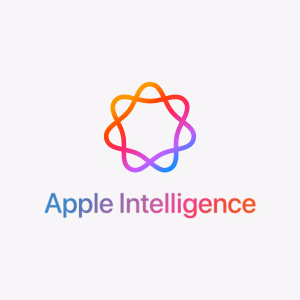Understanding iOS Signing: Why It Matters
iOS signing is a crucial security measure implemented to ensure that devices run only verified and approved operating system versions. When a new iOS version is released, the previous version remains signed for a limited time, allowing users to downgrade if necessary.
The iOS 17.6 update, released on July 29, brought several enhancements to the user experience. One of the most notable additions was the Catch Up feature for sports enthusiasts using the Apple TV app.
While the Catch Up feature took center stage, iOS 17.6 also included various under-the-hood improvements and bug fixes, enhancing overall system stability and performance.
The Shift to iOS 17.6.1: Addressing Critical Issues
iOS 17.6.1 made its debut on August 7, primarily focusing on resolving bugs and patching security vulnerabilities. This quick succession of updates underscores the company’s commitment to maintaining a secure and stable operating environment.
One of the most significant issues addressed in iOS 17.6.1 was related to Advanced Data Protection. Users encountered difficulties enabling or disabling this feature, prompting a swift response from the development team.
Most iPhone and iPad users may not notice any immediate impact from this change. However, it’s crucial to understand the potential long-term effects on device management and troubleshooting.
The cessation of iOS 17.6 signing significantly impacts those who jailbreak their devices. This community often relies on the ability to downgrade to exploit vulnerabilities in older versions.
Users who experience issues after upgrading to iOS 17.6.1 no longer have the option to revert to the previous version as a troubleshooting step. This limitation emphasizes the importance of cautious updating practices.
The Future of iOS Updates and User Control
Apple’s Update Philosophy The company’s approach to iOS updates reflects a delicate balance between innovation, security, and user control. This latest move aligns with their long-standing focus on maintaining a secure ecosystem.
User Expectations vs. Security Needs
- The ongoing debate: User freedom vs. system integrity
- Potential future developments in update management
- The role of beta testing in mitigating update-related issues
Alternatives for Users Seeking Flexibility While downgrading is no longer an option for most users, alternatives exist for those requiring more control over their device’s operating system:
- Participation in beta programs
- Delayed update adoption strategies
- Third-party management tools (with cautions)
Best Practices for Updating To minimize potential issues and ensure a smooth experience, users should consider the following practices:
- Backing up devices before updating
- Waiting for community feedback on new releases
- Staying informed about known issues and fixes
Resources for Troubleshooting Despite the inability to downgrade, users have various resources at their disposal for addressing iOS-related issues:
- Official support channels
- Community forums and discussions
- Third-party repair and support options
Looking Ahead: iOS 18 and Beyond As the tech community eagerly anticipates iOS 18, questions arise about future update policies and their impact on user experience and device management.
The Broader Ecosystem: macOS and watchOS
Similar Patterns in macOS Updates The approach to iOS updates mirrors similar strategies in macOS, with recent releases like macOS Sequoia addressing critical security exploits.
Synchronization Across Platforms The harmonization of update policies across iOS, macOS, and watchOS reflects a cohesive ecosystem strategy, emphasizing security and stability across all devices.
Implications for Cross-Device Functionality As devices become increasingly interconnected, the impact of update policies extends beyond individual devices to the entire ecosystem of products and services.
The decision to halt signing for iOS 17.6 marks another step in the ongoing evolution of mobile operating system management. While it may pose challenges for some users, particularly those in the jailbreaking community, it underscores the company’s commitment to security and system integrity.
For iPhone and iPad users, this change serves as a reminder of the importance of staying informed about updates, backing up data regularly, and approaching new releases with a balanced perspective. By understanding the implications of these policies and adopting best practices, users can navigate the ever-changing iOS ecosystem with confidence and security.













